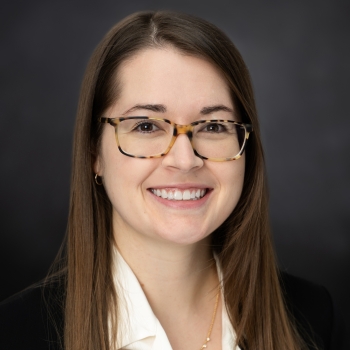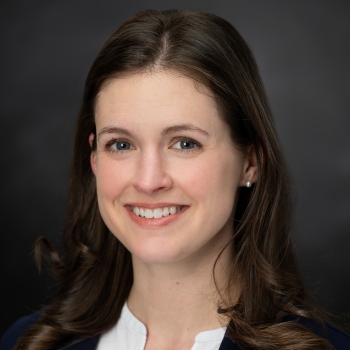Early Career Technical Achievement Awards
These awards recognize individuals under the age of 35 who have applied technical expertise, inventiveness, and leadership abilities to make substantial contributions to R&D programs.
2024 Early Career Technical Achievement Award Recipients
Olivia M. Brown
For her significant contributions to the development of robust AI algorithms for defense applications, and for her dedication to educating the missile defense community on responsible applications of AI.
Dr. Ashley C. Long
For her deep technical knowledge of space systems and radiation effects, strong leadership of large space programs, and skillful communication with stakeholders across agencies and governments.
Past Early Career Technical Achievement Award Recipients
2023
Dr. Steven R. Gillmer, for enabling the success of Laboratory prototypes through his creative problem solving, technology innovation, and recognized leadership in the fields of optomechanics and precision engineering.
Cheryl A. O’Keefe, for her technical breadth and leadership skills in a wide array of rapid prototyping and system-level analyses spanning air superiority, space control, undersea sensing, missile defense, communications, acoustic sensing, and optical imaging.
2022
Dr. Lulu Liu, for innovation and leadership in the development of electro-optic technologies for next-generation directed energy and remote sensing systems. Over the past five years, Liu has proven be a prolific and innovative researcher, a successful program developer, and an exceptional leader.
Dr. Curt M. Schieler, for leadership in developing next-generation optical communication technologies. Schieler has the unique ability to combine deep theoretical insights with strong hardware development skills. His contributions have significantly impacted the future direction of optical communications both within the Laboratory and in the broader community.
2021
Dr. James M. Kurdzo, for his outstanding work in applying his expertise in weather radar systems, severe weather phenomenology, and signal processing to inform complex systems analysis studies and to advance algorithm development in support of programs for improved weather monitoring and prediction.
Dr. Cheryl M. Sorace-Agaskar, for advances in integrated photonics, including the development of the silicon nitride photonic integrated circuit platform that is the primary platform for most of Lincoln Laboratory's integrated photonics programs, and for her leadership in the national integrated photonics community.
2020
Dr. Nicholas D. Hardy, for system analysis expertise and technical insights that have enabled his major contributions to critical challenges in modern optical communications technology, including the demonstration of entanglement-based quantum communications over fiber and free-space channels and of high-rate undersea laser communications.
Dr. Meghan E. Ramsey, for demonstrating excellent technical capabilities and leadership in multi-agency programs that are addressing the threats from emerging pathogens, the pathology of infectious diseases, the development of medical countermeasures, research in aerosol science, and biodefense response and recovery.
2019: Dr. Brian G. Saar and Dr. Emily Shen
2018: Dr. Danelle C. Shah and Dr. Thomas Sebastian
2017: Dr. Lori D. Layne and Dr. Alexander M. Stolyarov
2016: Dr. Emily E. Fenn and Dr. Vijay N. Gadepally
2015: Dr. Bow-Nan Cheng and Dr. Francesca D. D'Arcangelo
2014: Dr. Matthew T. Cornick and Dr. Hamed Okhravi
2013: Dr. Brooke E. Shrader and Scott Van Broekhoven
2012: Laura A. Kennedy and Dr. Jason R. Thornton
2011: Michael T. Boulet and Dr. Mykel J. Kochenderfer
2010: Nadya T. Bliss and Dr. Timothy M. Hancock

